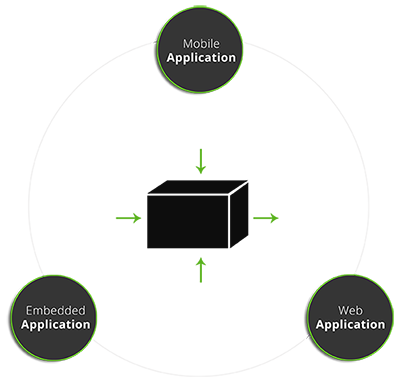
Functional testing encompasses the complete functionality of an application. It is the most widely used testing type for determining the quality of an application. As there are various aspects in testing functionality of an application, the process of functional testing performed at SQA Consultant includes multiple testing types depending upon the nature of the application. The process of functional testing starts with requirements analysis. We devise the test plan based on the requirements analysis. The test plan can include either or both manual and automated testing according to the nature of the application. For stable applications with a moderate level of complexity and a high level of repetitive test requirements, we devise automated testing scripts. The key during this phase is that the functional requirements of the product are iterated and understood by all stakeholders.
In the second phase, we identify the test scenarios and then write the test cases. The next phase is the regression testing to ensure the quality of application after each fixing. We document all reports generated during various stages of functional testing through the ‘defect life cycle’ management process. These data enable a deep insight into the reasons of the bugs and improve the quality of application for future development cycles. Embedded and web application’s functional testing services are two focus areas of our functional testing services.
Testing Embedded Applications
The procedure for functional testing varies with the nature of applications. For embedded applications, the steps performed include: software module testing, software testing, software/hardware integration testing, system testing, and validation. Embedded systems based products vary from basic designs to systems which require high safety measures to operate in the market. Applications needing to comply with safety standards require functional testing among other tests, but these tests are performed in stages rather than in a single go. After unit testing, we perform software module tests during which we test the interaction among different modules. This is followed by software and hardware integration tests and to complete the process, we perform system tests. SQA Consultant team has a unique expertise in testing safety-critical applications ranging from SIL 1 to SIL 3 systems. For details, kindly visit the Agency Approvals and Certifications page
Testing Web Applications
For web applications the end user’s facility is one of the key considerations. To ensure the web application’s quality from the users’ perspective, we offer following testing services: functionality of web application, usability, and user interface testing.
Functional testing of web applications depends on the applications’ structure. Generally, we perform the tests into two steps: verification of front-end functionality and the verification of back-end functionality. Front-end tests typically include testing the user interface and functionality of different controls. Back-end tests revolve around the verification of web services, databases, XML entries, etc.
Testing Mobile Applications
The functionality of an application installed on a mobile or tablet is different from PC applications’ functionality. Usually, mobile apps have fewer features and are more performance oriented, therefore we test the features of mobile applications against the desired behavior. A major part of mobile applications’ functional testing revolves around testing the applications’ performance on the phones or tablets.
Key Benefits
- Compatibility of different units of application
- Evaluation of complete system’s performance under practical environment
- Assurance of the fitness of application for purpose







